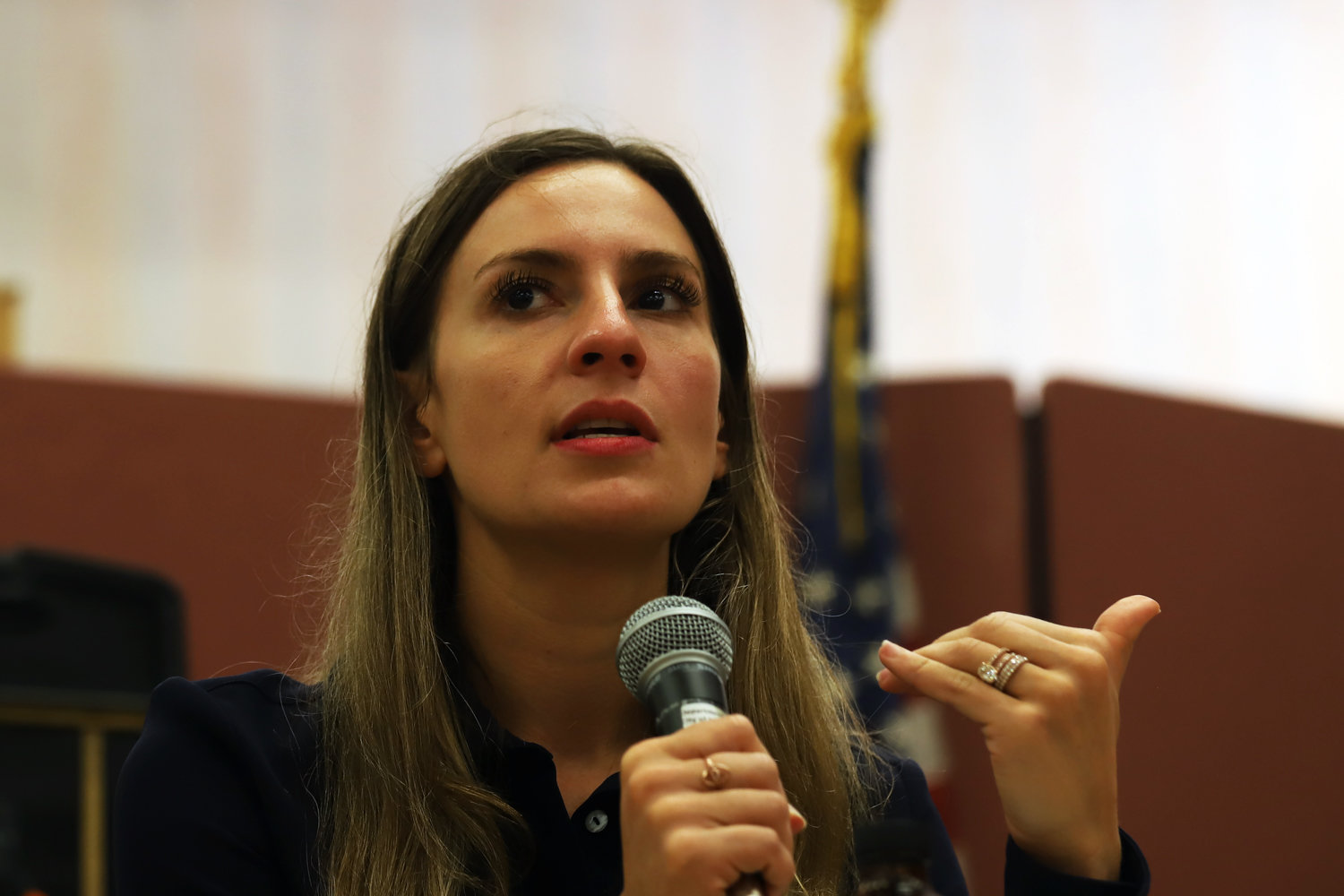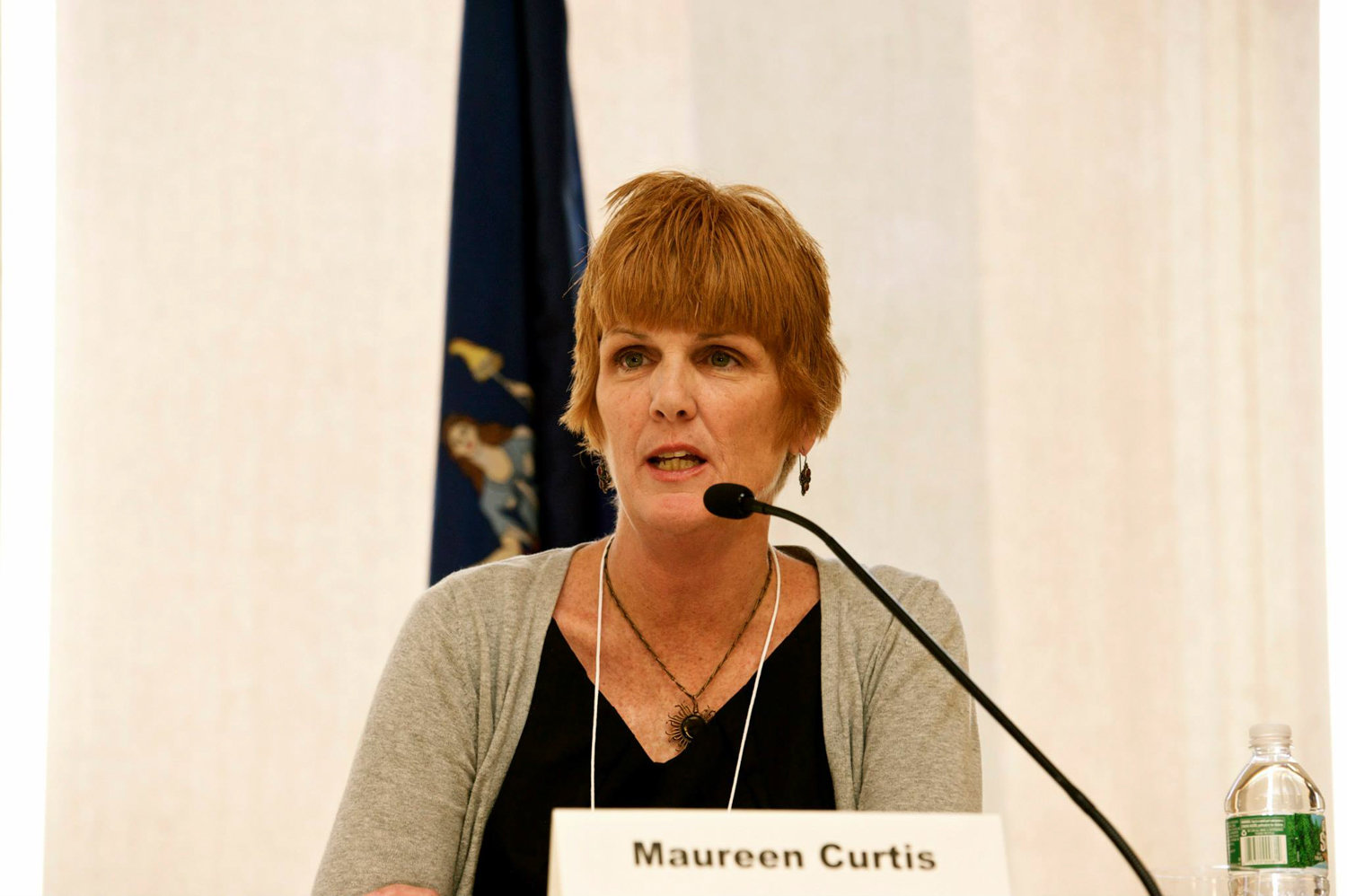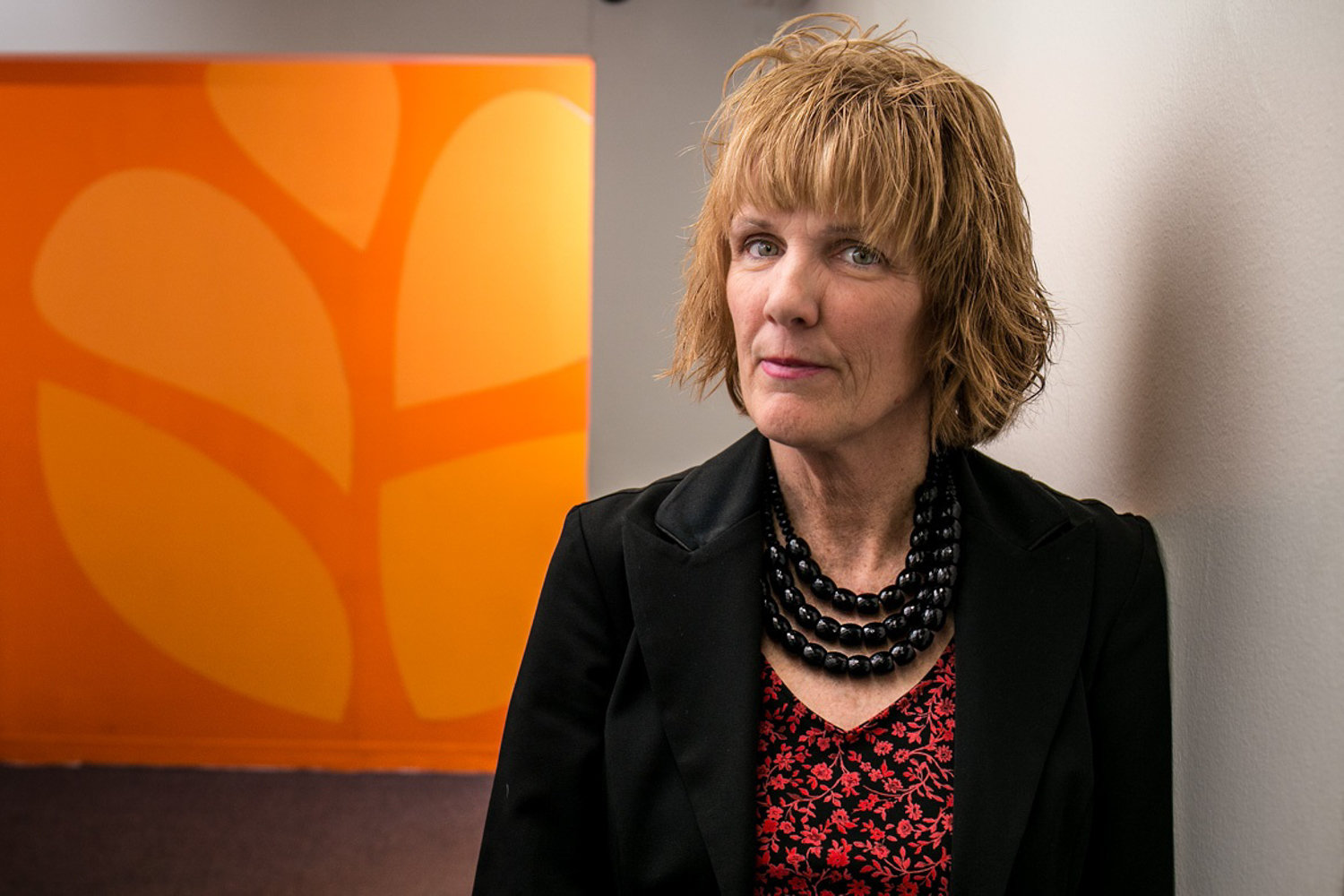Abuse your spouse? Don't expect to buy a gun, Biaggi says
State Sen. Alessandra Biaggi is staying busy in Albany by putting her name atop a number of bills making its way to Gov. Cuomo’s desk. It might be hard to find two bills more important to her than the ones she introduced earlier this year that would crack down on sexual harassment and domestic violence.
Biaggi’s bills are also intended to extend the statute of limitations on certain sex crimes, and even extend the SAFE Act, allowing first responders access to gun ownership information when responding to calls.
“First and foremost, the overarching theme of what policy I want to put forward is how do we make New Yorkers safer,” Biaggi said. “And especially how do we make women safer.”
That’s exactly what she’s trying to do with two of her first bills of the 2020 session. Taken together, they are aimed at improving protections for domestic violence victims.
The first, S.7125, closes a penal code loophole that would ensure domestic violence offenses are automatically added to the federal instant background check system. The system is a vital resource for those trying to purchase firearms, but doesn’t necessarily contain some arrest records, like those related to domestic violence, Biaggi said. That means a domestic violence offender who had been charged in New York might be able to leave the state, purchase a firearm elsewhere without being flagged, and return to New York.
If Biaggi’s bill becomes law, this would make such an arrest part of the federal system, meaning such a buyer would be flagged no matter what state he tried to purchase a weapon in.
“When it comes to this specific issue of obtaining a firearm after being convicted of domestic violence, there is a gap in the law at the state level, even though the federal level, of course, catches it,” Biaggi said. “We are matching (the federal law). We don’t want state-level convicted domestic violence offenders to be invisible in other states.”
There’s still more work to be done, however. Maureen Curtis, vice president of criminal justice at Safe Horizon — an organization that supports domestic violence victims — says most gun crimes committed in New York City use an illegally owned weapon that was purchased inside the state, or even with the city limits.
“It’s so different from even outside New York City, where you have more legal gun ownership,” Curtis said. “In most cases, it’s sold illegally in New York. Definitely taking guns off the streets, taking guns out of the hands of those who are abusive, can save lives.”
Even legal guns can increase the risk of accidental deaths, Curtis said. A 2004 National Institutes of Health study showed that more than 50 percent of women in abusive households where a gun was present had been threatened with the gun at least once.
“When there is a gun present, it does increase the likelihood significantly that a person — that a woman — will be killed by her abusive partner,” she said.
Biaggi’s second bill is intended to work alongside the new firearm specifications, allowing prosecutors to access prior sealed domestic violence convictions.
Law enforcement already has access to those records, Biaggi said, but for whatever reasons, they were off-limits to the very lawyers intended to convict those who break the law. This new measure is another clarification — ensuring that prosecutors will be acknowledged as an extension of law enforcement, and are always able to see those sealed records.
“It’s focusing on culture and the cycle of violence, and the pervasiveness of domestic violence and the danger that repeat offenders will pose,” Biaggi said. “Domestic abusers violate orders of protection, and victimize or abuse the same individuals over and over again.”
There were nearly 30,000 intimate partner domestic incident reports in the Bronx in 2018, according to the Mayor’s Office to End Domestic and Gender-Based Violence. More than 900 of those reports came from within the boundaries served by Community Board 8, although the community had some of the boroughs lowest domestic violence reporting.
“There is no doubt that a domestic violence case is different from any other case,” Curtis said. “Domestic violence has a higher repeating rate. And it is a case of the person who is abusive does abuse their partner more than once.”
Even when the survivor is able to recount specific details about the case, accessing files can bring crucial details to the attention of the prosecutor, and help to establish the facts of earlier cases that have been brought against the alleged abuser.
“Having the history of violence can really be helpful in determining what consequences that person will face,” Curtis said.
It’s also important for the courts to be able to access prior orders of protection to see if they’ve been violated, Biaggi added.
“If there’s multiple arrests, that might be something we could strategize amongst all the players in the system,” Curtis said. “What are the next best steps that can happen?”
Victims do sometimes get tired of the criminal justice system, Curtis said, and can feel like it’s no longer working for them — especially in instances where there have been multiple court visits. That’s where advocate groups can step in and find other ways to make victims and their families feel safe again — whether that be by finding a shelter or filing a restraining order.
“Another example is a person may not want to pursue the criminal justice avenue but they may say, ‘I want to go to family court, I want to file for an order of protection,’” Curtis said.
She remembers a domestic abuse victim who shared her story in a panel discussion. When asked what she wanted other people to know about surviving domestic abuse, the woman had asked for them to understand how complex survival can be.
“It may seem simple to people looking at it from the outside, but it’s not so simple,” the woman said. “It’s really important, particularly in the criminal justice system. People in the system understandably get frustrated, particularly if it’s a very high-risk case.”















